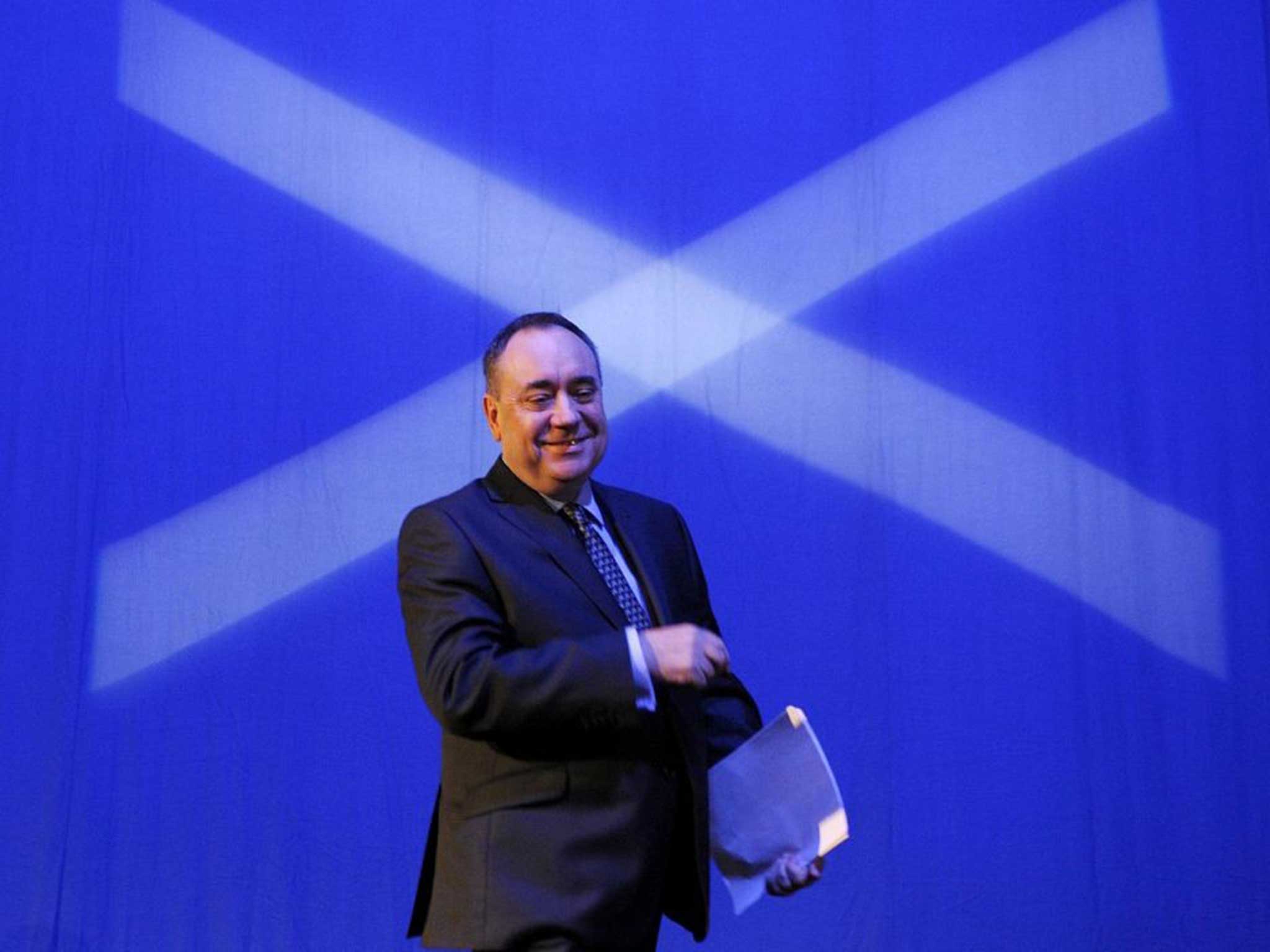Scottish independence: D-Day would spell ‘Disaster’ for us Rowlingites
There may be a last-minute surge for doing the disruptive thing


The things that happen while we southern Scots are engaged in other things. The Scottish parliament is supposed to have four-year terms, but that would mean its elections would clash with the UK general election next year, so it was decided to give Alex Salmond, free of charge and for nothing, an extra year in government. The next Scottish parliament elections will be in May 2016.
That would be just after Scotland becomes an independent country if it votes “Yes” in the referendum next week. The Scottish National Party envisages 24 March 2016 as D-Day.
That is D for Disaster, from my point of view. I am a Rowlingite, a Geldoffian, a Bowieist. I want Scotland to stay as part of my country. I would be entitled to a Scottish passport if it became independent, as I had Scottish grandparents, but I don’t want some bureaucracy deciding that I am a dual national when I have managed to contain those multitudes all my life. Forgive the personal history, but this is important and everyone ought to say what they think, because this is about English, Welsh, and Northern Irish residents, too. Many of those residents seem surprisingly indifferent to the possible dismemberment of their country, but others became aerated last week, prompted by one opinion poll from YouGov, last Tuesday, which showed support for independence at 47 per cent, just three percentage points short of victory.
It may be that London-based politicians and journalists have tended to assume that Scotland would say “No”, and were shocked into thinking about the consequences of a “Yes” vote for the first time. (Although last week some of the Westminster media pack still seemed more interested in the Clacton by-election.) Perhaps that was why some of the reaction to the YouGov poll was so odd.
One was that the Prime Minister would have to resign if he lost the referendum. David Cameron was forced to say, again, no he wouldn’t. He has to say that because otherwise he might give more of an incentive to anti-Tory Scots to vote for independence (not that this makes any sense: the resignation of a UK party leader would not affect an independent Scotland, but these things don’t have to make sense). Actually, it seems unlikely that he would lead the Conservatives into next year’s election if he lost: it would be a terrible blow and his judgement would have been found wanting. But it is not the most important thing.
Another reaction was that the UK election would have to be postponed, because if Labour won next year with Scottish MPs, Ed Miliband’s majority would disappear 10 months later when Scotland seceded, which is why I started with the timetable. That the UK election, already overdue because of the awful Fixed-Term Parliaments Act, might be put off further is nonsense, as could have been revealed by closer inspection of the source of the story. An anonymous minister was quoted as “predicting” that there would be “calls for a delay”.
Then we had variations on the party advantage theme: that Scotland’s separation would lead to Tory domination of the rest of the UK for ever more. This wasn’t true in Tony Blair’s time: Labour won most seats in England in all three of his elections. Which in turn prompted Phil Collins, his former speech-writer, to write that “flirting with Scottish nationalism is a guilty pleasure”, because secession would force Labour to be “more to my taste”. But he admitted: “This is a trivial reason to break a union of three centuries’ standing.”
Indeed, all of this is procedure rather than substance. It is true that some Scots will vote “Yes” because they want to throw off the English Tory yoke, and a few might be less likely to do so if they thought Miliband were likely to be prime minister next year.
But if the Scots really are likely to vote for independence, what matters is what difference it will make to the people of Scotland and what is left of the UK.
Today’s YouGov poll changes everything, of course. Last Tuesday’s poll could have been a one-off. Today’s may be a second cruel surprise of random sampling variation. But it cannot be denied any more that the contest has become tighter in the past few weeks. This is the first poll asking the straight referendum question that has ever shown the “Yes” campaign to be in the lead. There will be more polls over the next few days and every one will cause a little explosion.
What may be happening is a last-minute surge for doing the disruptive thing, for raging against Cameron, Clegg, and Miliband alike. But a last-minute reversion to the safety of the status quo could be just as likely to happen.
If Scotland votes No, there will still be procedure questions, and they are more likely to include: how soon before the SNP comes back for another go? The closer the result, the more pressing the question. But I would happily trade those entanglements for the capital-D Disaster of separation.
Join our commenting forum
Join thought-provoking conversations, follow other Independent readers and see their replies
Comments
Bookmark popover
Removed from bookmarks